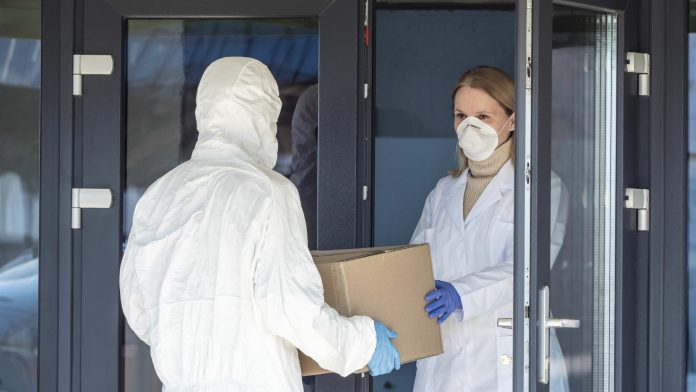A few weeks ago, I published an op-ed in The Hill entitled “Trust Private Enterprise to Flatten the Curve.” There I argued that markets, rather than the heavy hand of government, are our best hope to combat COVID-19. Between then and now, markets have continued to provide patients and healthcare professionals with urgently needed goods and innovative ways to reduce the burden of the pandemic on our health care system.
For example:
- Abbott Labs developed a pathbreaking medical device that tests for coronavirus in five minutes. They expect to be able to produce 50,000 devices a day.
- Private laboratories perform about 85 percent of all COVID-19 virus tests in the United States. Quest and LabCorp alone perform 20,000 tests per day.
- Diagnostic startup enterprises, including EverlyWell, Nurx, and MyLAB Box have developed at-home testing kits for the COVID-19 virus, which could increase testing access for rural communities.
- Entrepreneurs in California are pitching ideas to the state government on how to quickly and cheaply build more ventilators as well as refurbish older ones.
- An informal group named the Pandemic Ventilator Project developed and produced a functioning ventilator using raw materials available at a hardware store.
- Dyson, the popular vacuum cleaner producer, recently began producing ventilators to meet global demand. The company is producing 10,000 ventilators for the United Kingdom’s National Healthcare Service and is also donating an additional 5,000 ventilators to global relief efforts. Remarkably, the company was able to design and produce their first ventilator, named the “CoVent” in ten days.
- Clothing producers including Brooks Brothers, American Giant, Hanes, and Fruit of the Loom are mass-producing medical masks for the public.
- Nexteer Automotive is using 3-D printers to make plastic masks and face shields. The company will soon produce 1,000 masks a day to donate to healthcare organizations and local governments.
- A non-profit company in Florida named Youth Fair is working with a construction company in Kentucky to erect a 250 hospital bed facility in Miami, Florida,to prepare for local hospitals reaching capacity.
- Health insurance provider Cigna recently announced it will waive out-of-pocket expense for telehealth visits through the end of May to, “minimizes the demands on in-person primary care, urgent care, [Emergency Department], etc.”
These are a small sample of what the private sector is undertaking to battle the coronavirus pandemic. Unfortunately, their heroic efforts are often overshadowed by political actions taken to “flatten the curve.” Let’s give the private sector the credit it deserves.
